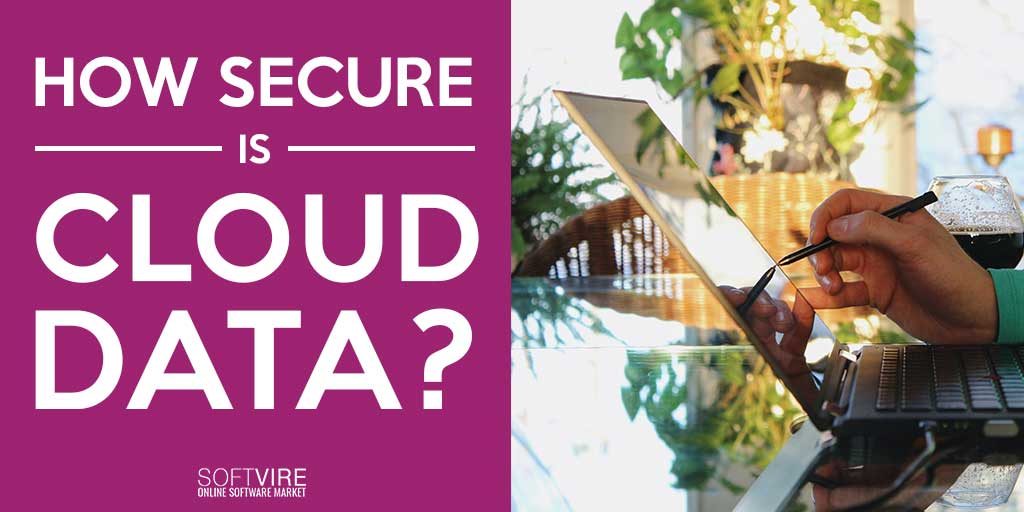
No matter how much space your computer’s hard drive has, it isn’t enough. With plenty of documents, photos, videos, and music to store, saving them on your computer will take up space. When that happens, you will end up with a slow and lagging device. No one wants that, right?
That’s why more and more people and businesses prefer to store their files in the cloud. There are plenty of third-party providers you can find to store your data. You can also have unlimited storage space if needed.
But cloud data storage is not only beneficial for keeping your data safe. It has other advantages over hard drive storage. When your device crashes, you can easily retrieve your data on the cloud database. There is no need to wait until your device is working again.
Cloud storage sounds like an excellent option for businesses with thousands or even millions of data. However, the biggest concern of most people is the security and integrity of cloud computing.
Would it be easily hacked? What happens when your data is compromised? Can you trust cloud storage to keep your files completely safe? What happens when the cloud system fails?
Table of Contents
What is the Cloud?
A cloud is a form of software or service that can be accessed on the internet. These databases run on servers located all over the world. Instead of saving files on your computer’s hard drive, using the cloud can make things easily accessible.
Since cloud servers are managed by the provider, users don’t need to have a physical server. Hence, it removes a burden on companies or businesses that cannot afford it.
When storing on the cloud, you can obtain files or documents on any device, anywhere and anytime. So as long as you have access to it.
The most who benefit from cloud storage are businesses. Instead of hiring IT personnel to maintain their servers, cloud storages take care of them. Cloud vendors assure that their system runs 24/7 and is secured all the time.
How Secure Are Cloud Storages?
The ultimate concern of cloud users is the security that comes along with cloud service providers. Using the cloud means you trust your data to a third party to manage and keep them safe. But how sure are we that our data is secured?
How do cloud storage providers keep millions of cloud data safe?
Fact, cloud storages are far safer than saving your files on your device. Unlike the cloud, our devices and hard drives are vulnerable to threats like malware. Sometimes we don’t even know that our device is already carrying malicious code or software. Meanwhile, the cloud has a group of dedicated security teams that make sure nothing goes wrong with your data.
Here’s how cloud storages keep your data safe.
Encryption
All cloud storage has trusted encryption security. It keeps data safe from intruders or interception during storage or the transfer of the data. Without encryption, the data is easily exposed. Anyone, including your internet provider, can see all the data during the transfer process.
Cloud storages use two encryption forms: Data-in-transit and Data-at-rest.
The data-in-transit relies on the encryption of SSL. All data transferred from the authorized user to the cloud server are encrypted, and only the intended server can read the data. Meanwhile, the data-at-rest is secured and can only access with an authorized key. Anyone who tries to access the stored data without the proper keys can only copy useless data without meaning.
Leading cloud storage also has end-to-end encryption security. It means even the providers themselves can’t access your files.
Provide Consistent Updates
Cloud providers make sure to check their systems for malicious codes, bugs, and vulnerabilities. They patch these issues with regular updates they provide.
Your providers will make sure that your cloud security is updated. There is no need to constantly update your storage at all.
With consistent security updates, your data gets the best security from threats like malware, viruses, and new ones.
Presence of Built-in Firewalls
Your cloud provider includes built-in firewall security to keep your files protected. Firewalls, whether it’s a hardware or software version, are designed to filter the traffic of a network. It can detect suspicious activity and blocks them immediately.
Cloud providers used advanced and internal firewalls. The advanced firewalls are used to verify the packet content. Furthermore, it will check for possible threats in the data packet. Meanwhile, internal firewalls limit access to cloud accounts.
Data Redundancy
Cloud storage that is secure and reliable make sure to copy and store your data in their different data centers. This process is called redundancy / ultra-back-up / geo-replication.
Redundancy provides an immense impact when disasters happen. Whenever data loss occurs, businesses that store their data with a reliable cloud provider can access their files anytime.
Cloud backup and cloud security are two of the features you need to be looking for when choosing cloud storage.
Provide Admin Control
Cloud providers make sure to give users admin control over their data. You can track who can access your file, what is being added or deleted, and permit access to your employees.
Admins can audit their cloud storage to make sure that files are kept safe. This security feature of cloud storage is beneficial to employers. They can control who can access their files in their company.
Account Access
Cloud storage vendors provide users the right to create and control their accounts. Users can secure their data with a strong password and also activate the two-factor authentication.
Users must create passwords based on the minimum required standard of the cloud provider. Often, passwords required should include upper and lower cases, symbols, and numbers. Businesses should practice creating strong passwords for their accounts to add a layer of security.
Meanwhile, the 2FA serves as a second method of identification after logging in with your password. 2FA is a numerical code sent through SMS or email.
These two features are part of all cloud storage, and you can’t have an account without a password.
Storage providers have the best interest of their customers. They include only security protection that can secure data from any threats. However, data protection doesn’t only fall in the hands of cloud providers. Individual users should be responsible too.
Keep your accounts safe on the cloud with this cybersecurity checklist.
Secure Your Device
Always Enable 2FA
You can choose to use 2FA or not for your cloud storage accounts. But we highly recommend that you enable your two-factor authentication to add another layer of security to your account.
Back up Your Data
Your provider may back up your data, but you must also make it part of your security routine. Back up your data or files regularly in case you encounter a power interruption, disaster, or threat.
Update Your Device
Keep your device and its software programs up to date to avoid threats to get into your system and access your files. Spyware can be a dangerous threat. When it has access to your accounts’ passwords, it can easily log in and encrypt your data.
You can use software like AVG Driver Updater, Snappy Driver Installer, and more to update your system and software automatically.
Use Antivirus Software
You also need to protect your device and system from threats by installing antivirus software on your computer and your employees’ too. There are tons of antivirus software online that you can choose from. The most trusted brands are Bitdefender, Kaspersky, and Malwarebytes.
So, should you trust your data with cloud providers? Yes. They are secure and reliable, and you don’t have to worry about maintaining your server at all.
Find out which cloud storage provider can meet your organization’s needs and start moving your data to the cloud for better storage and security.
AUTHOR BIO

VANESSA VENUGOPAL
Vanessa Venugopal is a passionate content writer. With four years of experience, she mastered the art of writing in various styles and topics. She is currently writing for Softvire New Zealand.


